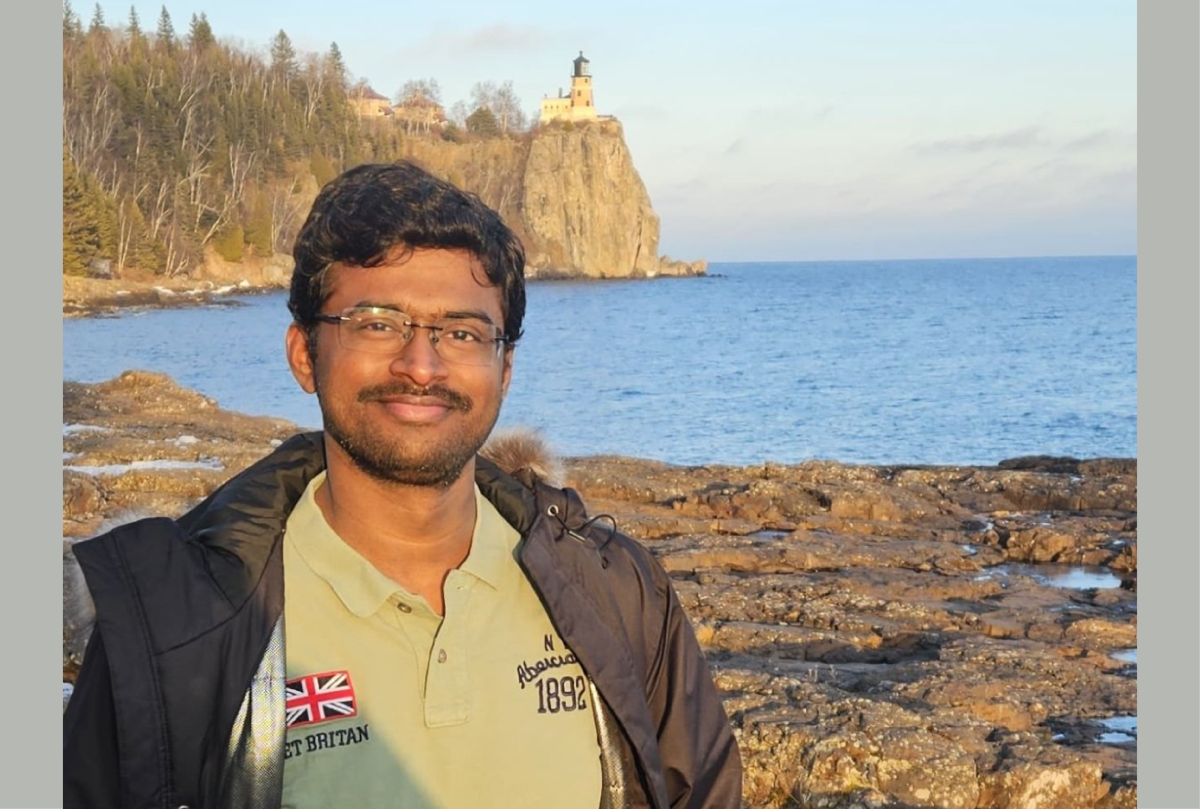CSpotlight: Using Machine Learning to Understand Medical Data

Why did you choose to pursue a degree in computer science specifically at the University of Minnesota?
There are two reasons why I specifically chose the University of Minnesota. The first is because of the research on machine learning and artificial intelligence. There are a lot of good professors here that are working in that area. The second reason is that the University of Minnesota has financial assistance through teaching/research assistantships. The assistantships also align with my two areas of interest: artificial intelligence and machine learning.
How did you become interested in computer science? What are your specific interests within the field?
Growing up, I used to be a proper geek. I loved to play with DC Motors, and radio receivers, where you transmit voice through radio frequencies. I’d send messages through such equipment to my friend's place. That's what kind of got me into technology. I also always thought that computer science was really important in our daily lives. Computer science is everywhere, in biology, medicine, and many different industries. That interest in technology is what brought me to computer science. How does technology help human science advance? Or human beings to advance?
There are many things that I want to explore, the first is machine learning and artificial intelligence. The second is how to develop systems for machine learning. How do you accelerate the new machine learning tasks using hardware like GPUs, and TPUs? I am currently a Research Assistant with Professor Yogatheesan Varatharajah. We are working on applications of machine learning in healthcare. We are currently looking at Parkinson's disease and how machine learning can help us get insights from Parkinson's data or how we can use health data from places like Apple Watch. We focus on products that track your steps or heartbeat throughout the day to predict if someone could be sick. The information we received from their health app can help us predict if they should go to the hospital to seek treatment before they have an infection. I like this area because it can have a tangible impact on humanity.
Congratulations on your research assistant funding! How will this scholarship impact your academic and extracurricular work?
It’s a huge relief for me. It helps me avoid any debt that I could have from being in graduate school. That is one of the reasons why I chose to come to the University of Minnesota. I can be more relaxed with my education and not have to worry about my tuition. I don’t have to think, “I have to focus on this subject so I can get this specific job to pay for school.” I can have the freedom to explore something that I am passionate about.
What do you hope to contribute to the computer science community at the University?
Specifically, I would like to develop a sort of computer science framework that would be used in the medical field to better understand health data through machine learning. There is a lot of talk about machine learning, but there are very few software systems that can handle demanding machine learning workloads. I would like to also contribute to the development of such machine-learning systems.
Have you been involved with any research on campus?
Right now, I am involved with understanding health through machine learning. I am specifically focusing on Parkinson's data, but in the future, we are planning on branching out to other forms of health data.
What advice do you have for incoming computer science students?
While you are here, develop a niche for yourself. There are a lot of computer science graduate students here out of the millions that are doing computer science. Developing a niche for yourself is a way to say, “This is the area that I am good at. If you ask me anything about this area I can tell you about it.” Creating a niche for yourself will help you be able to develop a strong understanding of your small area of focus and by the end of your graduation, you will become an expert in the area.
What are your plans after graduation?
I want to go back to the industry, I used to work in the computer science industry, and I would like to go back and work on computer science at a tech company to develop some impactful products there.